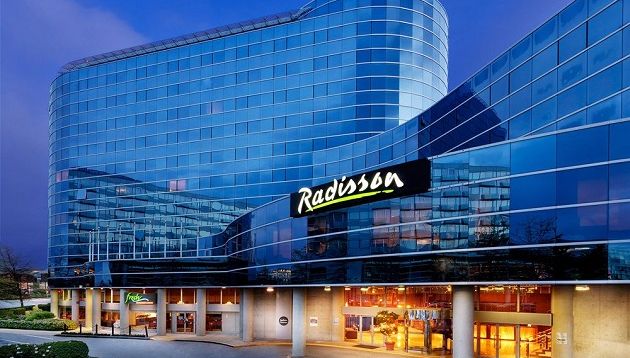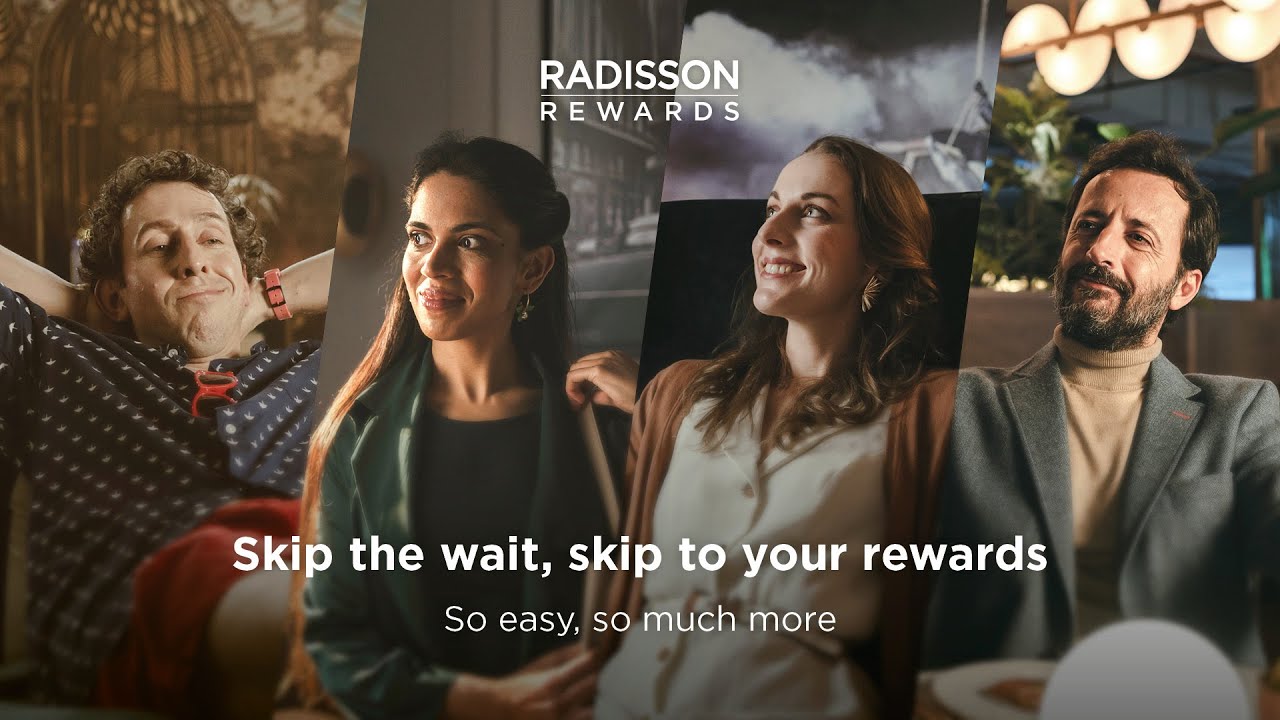Radisson Hotel Group, one of the world’s most recognized hospitality brands, has a rich history rooted in a commitment to providing exceptional service and luxurious accommodations across the globe. Founded in 1909 by Edna Dickerson in Minneapolis, Minnesota, Radisson began as a single hotel named after the 17th-century French explorer Pierre-Esprit Radisson. Over the decades, Radisson has grown from its humble beginnings into a global powerhouse in the hospitality industry, operating under multiple brands that cater to a diverse range of guests, from business travelers to vacationers seeking luxury experiences.

Radisson’s journey from a single hotel to a global brand is marked by strategic growth, innovation, and a deep commitment to guest satisfaction. The original Radisson hotel was designed to be a luxurious and modern facility, which set the standard for the brand’s future expansion. Throughout the 20th century, Radisson focused on expanding its footprint across the United States, offering a consistent blend of comfort, elegance, and superior service. This expansion was driven by the brand’s reputation for quality and its ability to adapt to the changing needs of travelers.
A significant milestone in Radisson’s history came in 1962 when the Carlson family acquired the Radisson Hotel in Minneapolis, marking the beginning of a new era for the brand. Under the leadership of Curt Carlson, Radisson began an aggressive expansion strategy, both domestically and internationally. The Carlson family’s ownership brought a renewed focus on innovation, with Radisson becoming one of the first hotel chains to introduce amenities such as free in-room Wi-Fi and the 100% Guest Satisfaction Guarantee, which assured guests that their stay would meet or exceed their expectations. These initiatives not only enhanced the guest experience but also helped Radisson distinguish itself in the highly competitive hospitality industry.
The 1980s and 1990s were a period of rapid growth for Radisson, with the brand expanding into key markets around the world. Radisson’s international expansion strategy was marked by the opening of hotels in major cities across Europe, Asia, and Latin America. This global expansion allowed Radisson to tap into new markets and cater to a broader clientele, further solidifying its position as a leading player in the hospitality industry. During this time, Radisson also diversified its brand portfolio to include various sub-brands, each tailored to specific market segments and customer needs. These sub-brands include Radisson Blu, Radisson RED, and Park Plaza, among others, offering a range of experiences from upscale luxury to more contemporary and trendy accommodations.
Radisson Blu, one of the brand’s most successful sub-brands, was launched in 2009 and quickly became synonymous with modern luxury and innovative design. Radisson Blu hotels are known for their distinctive architecture, state-of-the-art facilities, and prime locations in major cities around the world. The brand’s emphasis on providing a unique and luxurious experience has made Radisson Blu a preferred choice for both business and leisure travelers. Radisson RED, another sub-brand, caters to a younger, more tech-savvy audience with its focus on bold design, vibrant social spaces, and a playful, informal atmosphere. These sub-brands demonstrate Radisson’s ability to evolve and adapt to the changing preferences of its guests while maintaining its core values of quality and service.
Radisson’s commitment to sustainability and corporate social responsibility (CSR) is another cornerstone of its brand identity. The company has implemented numerous initiatives aimed at reducing its environmental impact, such as energy-efficient building designs, waste reduction programs, and sustainable sourcing practices. Radisson’s “Think Planet” initiative, launched in 2012, is a global program aimed at reducing the group’s carbon footprint and promoting environmentally friendly practices across all of its properties. This commitment to sustainability is complemented by Radisson’s efforts to support local communities through various charitable initiatives and partnerships. By integrating sustainability into its business operations, Radisson not only meets the growing demand for eco-friendly hospitality options but also contributes positively to the environments and communities in which it operates.
Radisson’s focus on technology and innovation continues to shape its offerings and enhance the guest experience. The brand has embraced digital transformation by incorporating advanced technology into its operations, from online booking platforms and mobile apps to in-room technology that allows guests to control various aspects of their stay with ease. Radisson’s investment in technology has improved operational efficiency, provided greater convenience for guests, and enabled the brand to offer personalized services that cater to the individual preferences of each guest. This focus on innovation ensures that Radisson remains at the forefront of the hospitality industry, continually adapting to new trends and meeting the evolving needs of modern travelers.
In 2018, Radisson Hotel Group underwent a significant rebranding to unify its various brands under a cohesive global identity. The rebranding included a new visual identity, updated brand architecture, and a renewed focus on delivering memorable guest experiences across all Radisson properties. This rebranding effort was part of Radisson’s broader strategy to strengthen its global presence, increase brand awareness, and enhance its competitive position in the hospitality industry. As part of this strategy, Radisson also committed to expanding its footprint in key markets, particularly in Asia-Pacific and Africa, where the demand for high-quality hospitality services is rapidly growing.
Today, Radisson Hotel Group operates over 1,400 hotels in more than 115 countries, making it one of the largest and most geographically diverse hotel companies in the world. The group’s portfolio includes a wide range of properties, from luxurious five-star resorts to mid-scale city hotels, catering to the diverse needs of its global clientele. Radisson’s continued success is a testament to its ability to innovate, adapt, and consistently deliver on its promise of providing exceptional service and high-quality accommodations.
In summary, Radisson Hotel Group is a global leader in the hospitality industry, known for its rich history, commitment to quality, and innovative approach to guest service. From its origins as a single hotel in Minneapolis to its current status as a global brand with a diverse portfolio of properties, Radisson has consistently prioritized the guest experience, sustainability, and technological innovation. As the hospitality industry continues to evolve, Radisson is well-positioned to remain a dominant force, offering guests around the world the opportunity to experience comfort, luxury, and exceptional service in some of the world’s most desirable destinations.
Marketing Strategies of Radisson
Did you know that Radisson Hotel Group operates over 1,700 hotels worldwide? That’s enough rooms to accommodate the entire population of Monaco 45 times over! But how does this hospitality giant keep guests coming back for more in an era of endless travel options? Let’s check in to the world of Radisson’s marketing success. From its commitment to “Yes I Can!” service philosophy to cutting-edge digital innovations, Radisson has mastered the art of creating memorable stays that go beyond just a place to sleep. In this article, we’ll unpack the 9 key marketing strategies that have helped Radisson become a beacon of hospitality and continue to drive its success –
1. Brand Diversification: Catering to Every Traveler
Radisson’s brand diversification strategy is a key element of its success in catering to a wide array of travelers. The group’s portfolio includes a variety of brands, such as Radisson Blu, known for its luxury offerings, Radisson RED, which targets the younger, tech-savvy crowd with its trendy, minimalist design, and Country Inn & Suites, which offers a more homely and budget-friendly experience. This diverse brand lineup enables Radisson to serve different market segments, from high-end business travelers to families seeking comfort on a budget, thereby maximizing its appeal across demographics. Each brand maintains its unique identity, yet all share Radisson’s commitment to high-quality service, ensuring a consistent experience across the board.
In addition to targeting different market segments, Radisson excels at tailoring experiences to the needs of specific customer bases. For example, Radisson RED is designed for the millennial traveler, offering social spaces, art-inspired interiors, and strong digital connectivity, which resonate with younger guests who prioritize experience over traditional luxury. On the other hand, Country Inn & Suites focuses on providing a warm, welcoming environment for families and business travelers who value convenience and a home-like atmosphere. This segmentation allows Radisson to craft experiences that meet the distinct preferences of each traveler group, making them a preferred choice across various markets.

While maintaining unique brand identities, Radisson ensures consistency in quality across all its properties. This is particularly evident in their operational standards, staff training, and customer service policies, which are upheld rigorously across all brands. Despite the diverse target markets, Radisson’s hotels share a common thread of reliability and excellence, making the brand a trusted name in the global hospitality industry. This balance of diversification and consistency not only strengthens Radisson’s brand equity but also fosters customer loyalty, as guests know they can expect a high standard of service, no matter which Radisson brand they choose.
2. Loyalty Program Excellence: Radisson Rewards
Radisson Rewards serves as a pivotal marketing strategy for Radisson Hotels, designed to enhance customer loyalty and engagement. The program offers a range of features and benefits that cater to diverse traveler needs, including the ability to earn points for free nights, room upgrades, and exclusive member rates. A notable aspect of Radisson Rewards is the Discount Booster, which allows members to increase their discounts at the expense of earning fewer points, a feature that distinguishes it from other loyalty programs. Additionally, the program emphasizes personalization, with each member’s preferences and booking history being used to tailor offers and experiences, thereby enhancing customer satisfaction and loyalty.
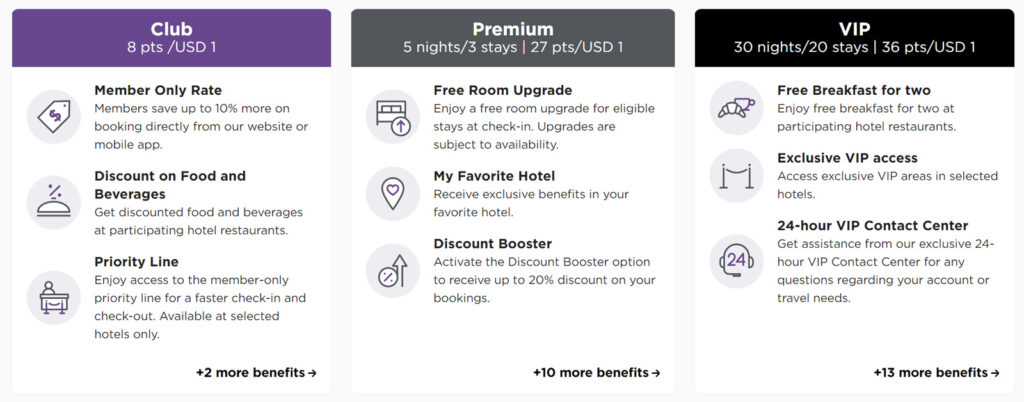
The partnerships Radisson has established with airlines, credit card companies, and other travel services further amplify the value of the Radisson Rewards program. Members can earn points through various channels, including hotel stays and spending on affiliated credit cards. For instance, the integration of Radisson Rewards with the Choice Privileges program allows for point transfers, enhancing the program’s appeal to a broader audience. This strategic alignment not only increases customer engagement but also positions Radisson as a competitive player in the hospitality market. Furthermore, collaborations with airlines enable members to earn additional points, making travel more rewarding and seamless for loyal customers.
Radisson’s recent campaign, “Skip to Rewards,” exemplifies its commitment to promoting the loyalty program’s benefits. This campaign highlights the immediate access to rewards that members can enjoy, contrasting it with traditional loyalty programs that often require lengthy point accumulation. By showcasing relatable scenarios and the unique benefits of Radisson Rewards, the campaign aims to attract new members and reinforce the loyalty of existing ones. The focus on personalized offers and enhanced digital experiences, such as a dedicated member app, ensures that Radisson Rewards not only meets but anticipates the needs of its loyal customers, ultimately driving brand loyalty and repeat business.
3. Digital Innovation and Mobile-First Approach
Radisson Hotels has embraced digital innovation and a mobile-first approach as a key component of its marketing strategy. The company has developed a comprehensive digital ecosystem centered around its website and mobile app, designed to provide a seamless and personalized experience for guests across all touchpoints.
Radisson Hotels App
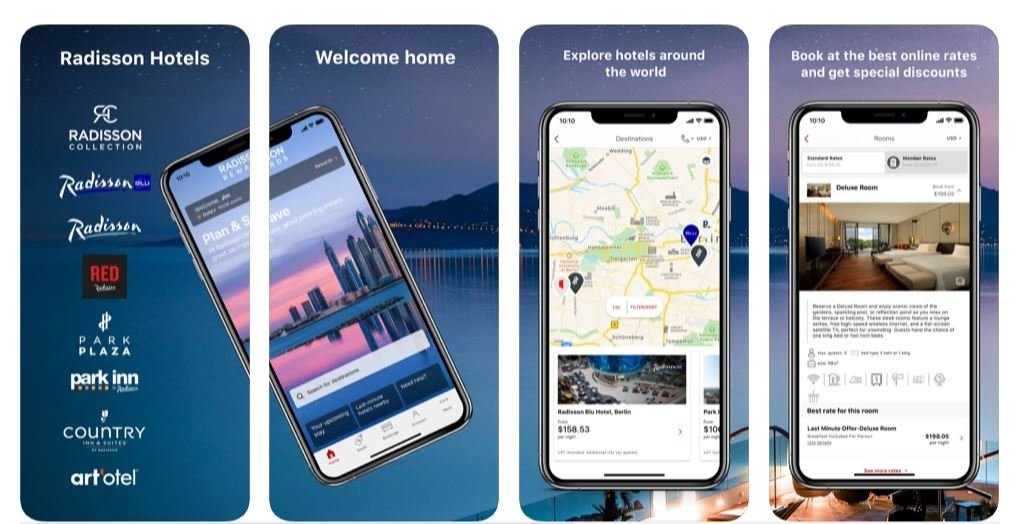
The Radisson Hotels app is a powerful tool that puts the guest experience at the forefront. It offers a range of features and functionalities that cater to the needs of modern travelers, including:
- Convenient hotel booking and management
- Access to exclusive app-only rates and special offers
- Ability to earn and redeem Radisson Rewards points
- Personalized recommendations based on user preferences and past stays
- Seamless integration with the Radisson Rewards loyalty program
Contactless Check-in and Digital Room Keys
To enhance the guest experience and minimize physical interactions, Radisson Hotels has implemented contactless check-in and digital room keys. Through the Radisson Hotels app, guests can bypass the front desk and go directly to their room, accessing their digital key with a simple tap of their smartphone. This innovative feature not only provides a more convenient and efficient check-in process but also aligns with the growing demand for contactless solutions in the post-pandemic era.
AI-powered Chatbots
Radisson Hotels has embraced artificial intelligence (AI) to provide enhanced customer service and booking assistance. The company has introduced AI-powered chatbots that can engage with guests in real-time, answering questions, providing recommendations, and even assisting with booking reservations. These chatbots leverage natural language processing and machine learning algorithms to deliver personalized and contextual responses, ensuring that guests receive the support they need, whenever they need it.By investing in digital innovation and adopting a mobile-first approach, Radisson Hotels has positioned itself as a leader in the hospitality industry. Through its comprehensive digital ecosystem, the company is able to deliver exceptional experiences, foster stronger relationships with guests, and drive business growth in an increasingly digital landscape.
By investing in digital innovation and adopting a mobile-first approach, Radisson Hotels has positioned itself as a leader in the hospitality industry. Through its comprehensive digital ecosystem, the company is able to deliver exceptional experiences, foster stronger relationships with guests, and drive business growth in an increasingly digital landscape.
4. Sustainability and Corporate Social Responsibility
Radisson Hotels has strategically integrated sustainability and corporate social responsibility (CSR) into its marketing efforts, reflecting a commitment to reducing its environmental impact while enhancing brand reputation. The company has set ambitious goals to achieve net-zero emissions by 2050, aligning its operations with the Science Based Targets initiative. This commitment is evident through various initiatives, such as the implementation of energy-efficient technologies and water conservation programs, including the Towel Reuse Program and Green Housekeeping initiatives. Radisson also emphasizes waste reduction by eliminating single-use plastics, showcasing its dedication to sustainable practices that resonate with environmentally conscious travelers.
Community engagement and local partnerships are central to Radisson’s CSR strategy. The hotel group actively collaborates with local organizations and charities to support community development and social initiatives. For instance, Radisson has partnered with SOS Children’s Villages to provide shelter and assistance to vulnerable children and families. Additionally, the company engages in disaster relief efforts, contributing resources and support in times of crisis. These partnerships not only enhance Radisson’s community presence but also foster a sense of belonging and responsibility among guests, who are increasingly looking for brands that align with their values.
Transparency in sustainability reporting further strengthens Radisson’s marketing strategy. The company publishes annual Responsible Business Reports, detailing its progress toward sustainability goals and the impact of its initiatives. This transparency builds trust with consumers, as they can see the tangible results of Radisson’s efforts in areas such as energy consumption reduction and community support. By openly sharing its challenges and successes, Radisson positions itself as a leader in sustainable hospitality, appealing to a growing segment of travelers who prioritize eco-friendly practices when choosing accommodations. Through these comprehensive strategies, Radisson Hotels not only enhances its brand image but also contributes positively to the environment and society.
5. Experiential Marketing and Local Immersion
Radisson Hotels has embraced experiential marketing and local immersion as a key component of its overall marketing strategy. By creating unique, destination-specific experiences for guests, Radisson aims to differentiate itself in the highly competitive hospitality industry and foster lasting connections with its customers.
Destination-Specific Experiences
One of the ways Radisson brings its experiential marketing strategy to life is through the creation of unique, destination-specific experiences. For example, at the Radisson Blu Hotel in Marrakech, guests can participate in a traditional Moroccan cooking class, where they learn to prepare authentic dishes under the guidance of local chefs. This immersive experience not only allows guests to savor the flavors of Moroccan cuisine but also provides them with a deeper understanding and appreciation of the local culture.
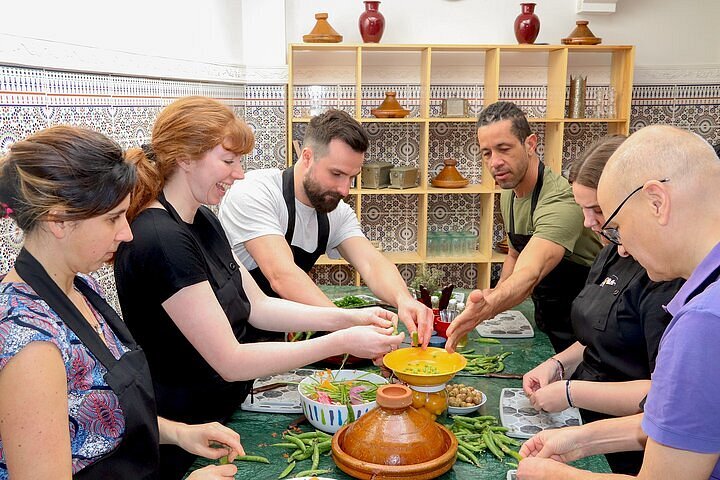
Partnerships with Local Businesses
To further enhance the local immersion experience, Radisson has forged partnerships with various local attractions and businesses. In Amsterdam, the Radisson Blu Hotel has collaborated with a renowned local bicycle tour company, allowing guests to explore the city’s charming streets and iconic landmarks on two wheels. This partnership not only provides guests with a unique and memorable experience but also supports local businesses and promotes sustainable tourism.
Social Media Campaigns
Radisson leverages social media to showcase the authentic local experiences it offers to guests. Through engaging social media campaigns, the company highlights the unique aspects of each destination, from the vibrant street art in Berlin to the stunning natural landscapes of Iceland. By sharing these experiences on platforms like Instagram and Facebook, Radisson not only inspires potential guests to visit but also fosters a sense of community and belonging among its loyal customers.
By embracing experiential marketing and local immersion, Radisson Hotels has positioned itself as a leader in the hospitality industry. Through its innovative experiences, strategic partnerships, and engaging social media campaigns, the company continues to deliver exceptional value to its guests and strengthen its brand reputation as a global hospitality leader.
6. Strategic Partnerships and Co-Branding
Radisson Hotels has strategically employed partnerships and co-branding as a critical marketing strategy to enhance its brand visibility and reach a broader audience. Collaborations with lifestyle brands and influencers have become a significant aspect of Radisson’s marketing efforts, allowing the hotel chain to connect with diverse demographics. For instance, Radisson has partnered with wellness brands to create exclusive packages that include spa treatments and healthy dining options. These collaborations not only attract health-conscious travelers but also position Radisson as a brand that prioritizes guest well-being and lifestyle, appealing to modern consumers who seek holistic travel experiences. Additionally, influencer marketing campaigns, where travel bloggers and lifestyle influencers share their Radisson experiences on social media, have proven effective in showcasing the brand’s offerings and generating buzz among potential guests.
Cross-promotions with complementary travel services further enhance Radisson’s marketing strategy. The hotel chain has successfully partnered with airlines and car rental companies to create bundled travel packages, providing guests with seamless travel experiences. For example, Radisson has offered special rates for guests who book a stay along with flights from partner airlines, allowing travelers to earn loyalty points with both the airline and the hotel. This strategy not only increases bookings for Radisson but also enhances customer satisfaction by simplifying travel logistics, making it more appealing for guests to choose Radisson for their accommodations. Such partnerships not only drive revenue but also create a more integrated travel experience for customers.
Radisson’s involvement in sponsorships of events and cultural activities also exemplifies its co-branding strategy. The hotel chain has sponsored various local festivals, art exhibitions, and sporting events, showcasing its commitment to community engagement and cultural promotion. For instance, Radisson has been a sponsor of the Berlin International Film Festival, providing accommodations for filmmakers and attendees while promoting its brand to a global audience. These sponsorships not only enhance brand visibility but also foster positive associations with local culture and community, making Radisson a preferred choice for travelers looking to immerse themselves in their destination. Through these strategic partnerships and co-branding initiatives, Radisson Hotels effectively enhances its marketing efforts, driving customer engagement and loyalty while reinforcing its position as a leader in the hospitality industry.
7. Adapting to Changing Travel Trends
Radisson Hotels has adeptly adapted to changing travel trends by focusing on the growing segment of bleisure travel, which combines business and leisure. Recognizing that many business travelers are extending their trips for leisure purposes, Radisson has tailored its accommodations and services to cater to this demographic. For example, the Radisson Blu brand offers amenities such as flexible workspaces, high-speed internet, and meeting facilities alongside leisure options like spas and local tours. By promoting packages that include both business services and leisure activities, Radisson effectively appeals to the needs of modern travelers who seek to balance work and relaxation during their trips.
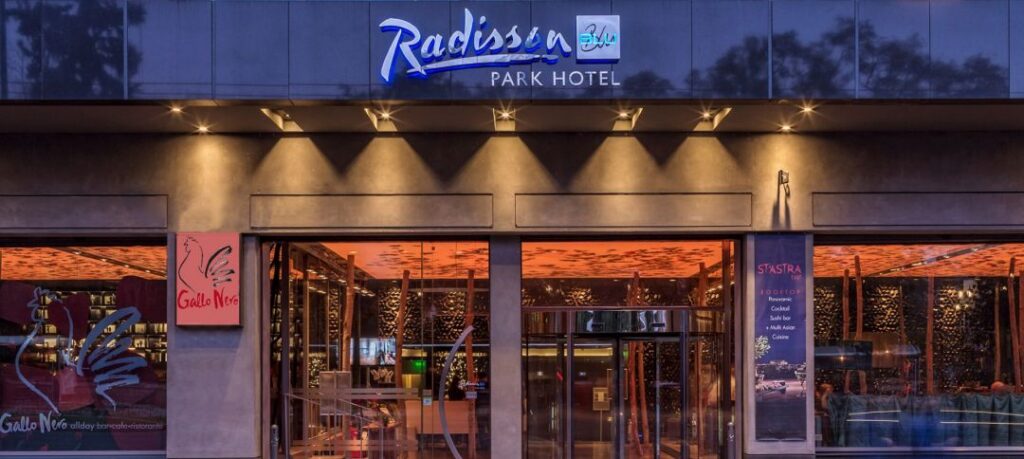
In response to global health concerns, Radisson has implemented enhanced health and safety protocols to ensure guest safety while traveling. The Radisson Hotels Safety Protocol includes a comprehensive 20-step cleanliness and disinfection plan, which covers everything from increased cleaning frequency to improved air circulation in public areas. For instance, the protocol ensures that high-touch surfaces are disinfected regularly and that hand sanitizing stations are readily available throughout the hotel. This commitment to health and safety not only addresses guest concerns but also builds trust and confidence, encouraging travelers to choose Radisson as a safe accommodation option.
Additionally, Radisson has introduced flexible booking policies and cancellation options to accommodate the uncertainties of travel in today’s environment. Recognizing that plans can change unexpectedly, Radisson has updated its cancellation policies to offer greater flexibility, allowing guests to modify or cancel their bookings without incurring significant penalties. For example, many of Radisson’s rates now include options for free cancellation up to a certain date, which is particularly appealing to travelers who may be hesitant to commit to plans amid changing travel restrictions. By prioritizing flexibility, Radisson not only enhances customer satisfaction but also positions itself as a responsive and customer-centric brand in the hospitality industry.
And there you have it – a master class in hotel marketing, courtesy of Radisson! From its diverse brand portfolio to its commitment to personalized experiences, Radisson has proven that success in the hospitality industry is about more than just providing a bed for the night. By embracing digital innovation, prioritizing sustainability, and staying attuned to evolving traveler needs, Radisson continues to write new chapters in the book of exceptional hospitality. As we look to the future, it’s clear that Radisson’s innovative approach to marketing will keep guests checking in and singing their praises long after checkout. So, the next time you’re mapping out your own marketing strategy, why not take some inspiration from Radisson’s playbook? After all, their approach to marketing is nothing short of a five-star experience!
Also Read: Breaking Down Marketing Strategy of Hilton Hotels
To read more content like this, subscribe to our newsletter

